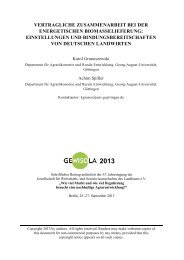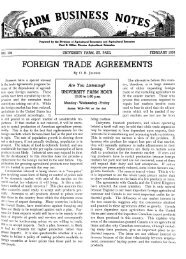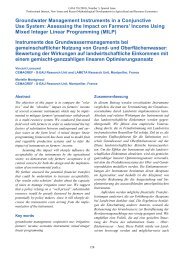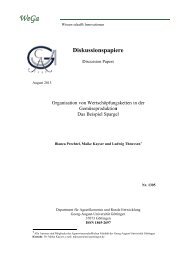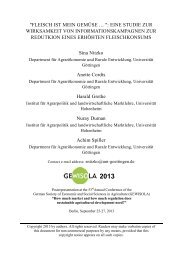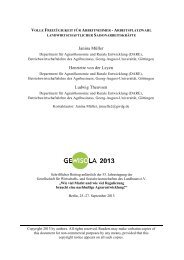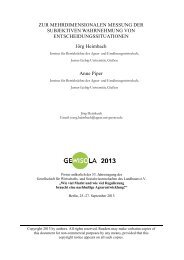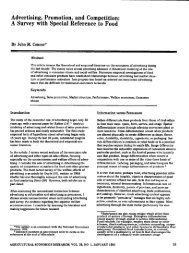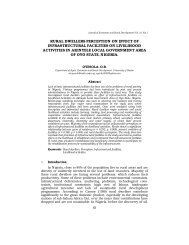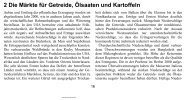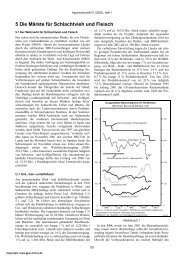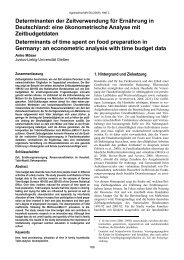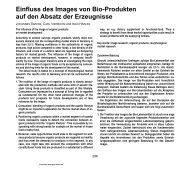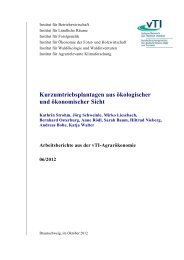District Institutes of Education and Training - Teacher Education
District Institutes of Education and Training - Teacher Education
District Institutes of Education and Training - Teacher Education
Create successful ePaper yourself
Turn your PDF publications into a flip-book with our unique Google optimized e-Paper software.
<strong>District</strong> <strong>Institutes</strong> <strong>of</strong> <strong>Education</strong> <strong>and</strong> <strong>Training</strong>: A Comparative Study in Three Indian States<br />
8.8 Policy implications<br />
This project demonstrated the care <strong>and</strong> time needed at the very first stage <strong>of</strong> action<br />
research – problem identification. It took several workshops for teachers to begin<br />
to reflect on their own practice, <strong>and</strong> to move away from locating problems in the<br />
nature <strong>of</strong> the community <strong>and</strong> administrative issues. Facilitating this process is<br />
dem<strong>and</strong>ing <strong>and</strong> requires gentle persistence in the face <strong>of</strong> the low expectations <strong>of</strong><br />
children that <strong>of</strong>ten dominated the discourse.<br />
This also reflects the importance <strong>of</strong> doing research with teachers before designing<br />
programmatic inputs, to identify with precision the aspects <strong>of</strong> pr<strong>of</strong>essional<br />
development that training is addressing. Had the project been input-led, it would<br />
not have understood well what teachers are already doing, <strong>and</strong> how to build on<br />
that. In this case, teachers were already doing several activities <strong>and</strong> using aids – yet<br />
training continues to target this as though all teachers are not doing so. The areas<br />
where teachers immediately needed more help were in developing strategies to<br />
cope in very large classes with the varying speeds <strong>of</strong> learners; more technical<br />
underst<strong>and</strong>ings <strong>of</strong> literacy acquisition to guide practice; <strong>and</strong> guidance on how to<br />
develop language work to make literacy acquisition more meaningful.<br />
As the project progressed, teachers began to appreciate that there are new skills<br />
involved in <strong>of</strong>fering supportive critical suggestions to colleagues. Another skill to<br />
develop was the ability to direct those suggestions towards practical problemsolving<br />
in existing realities, instead <strong>of</strong> an expectation <strong>of</strong> how things should be<br />
according to a notion <strong>of</strong> ideal circumstances.<br />
Helping teachers to see themselves <strong>and</strong> each other as resources, <strong>and</strong> to develop the<br />
necessary skills to be so, is a challenging project – <strong>and</strong> particularly in circumstances<br />
where, for many underst<strong>and</strong>able reasons, teachers exhibit quite high levels <strong>of</strong><br />
disaffection. Yet it demonstrably made teachers view their own development, <strong>and</strong><br />
pr<strong>of</strong>essional requirements, in a different light. This really emerged as the crux <strong>of</strong><br />
the difference between the reflection into action approach to teacher development,<br />
<strong>and</strong> the dominant ‘input given by expert’ approach that appears legitimate<br />
without ever really engaging with classroom realities.<br />
The approach to teacher development that was undertaken here reflects the idea <strong>of</strong><br />
peer-learning underpinning the Cluster Resource Centre concept. The implications<br />
for the Cluster Resource Centres from this experience are that for a peer learning<br />
platform to be effective, it is essential for teachers to be able to describe, reflect <strong>and</strong><br />
comment supportively <strong>and</strong> critically on their own <strong>and</strong> others’ teaching. This<br />
research project established that this does not happen easily or automatically.<br />
168 DFID



